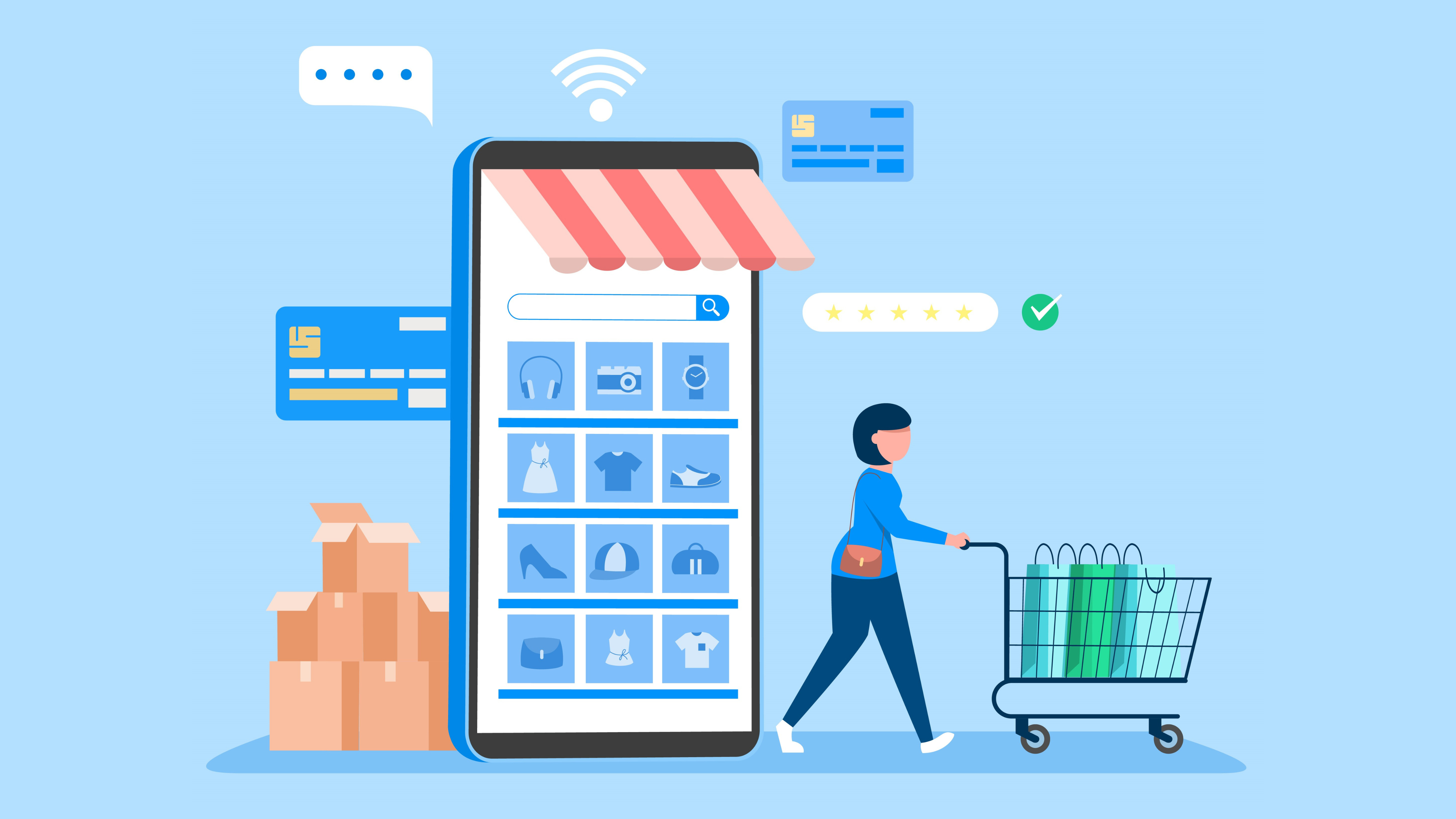M-Commece or Mobile commerce is quickly growing as a new mode of browsing. Businesses keep looking for innovative ways to enhance the customer experience, even while consumers continue to appreciate the ease of online shopping. A popular new trend that has proven successful for numerous firms is mobile commerce.
M-commerce is not the newest and greatest thing. It’s a phenomenon that has already materialized. Entrepreneurs and start-up owners need to know what m-commerce is and the consequences of missing an opportunity.
People are more inclined to make purchases using mobile devices, websites, and apps due to the convenience of m-commerce (mobile commerce) and its expanding popularity. Consumers are willing to accept the mobile device as a means of making online purchases, and numerous firms are releasing their apps. Implementing a chatbot can improve customer experience (CX) and encourage customers to make purchases on mobile devices rather than in-store.
What is M-Commerce?
Mobile commerce is often referred to as MCommerce. Mobile commerce is the use of portable electronics, like smartphones or tablets, to connect to the internet wirelessly. It’s an excellent online shopping experience as a result, but on a mobile device. Furthermore, mCommerce made all products and services available and ensured an easy connection. Its primary goal is to improve smartphone CX, which will ultimately result in increased revenue and conversion rates. Digital wallets, mobile payments, mobile banking, and mobile shopping are the three main areas into which m-commerce is typically divided.
Individuals are spending more time on mobile devices than on traditional PCs with internet connection as they become more prevalent. The popularity of mobile commerce is rising in line with the rise in smartphone usage. Given its many applications, MCommerce is expected to overtake other marketing and sales strategies in the near future. Furthermore, mCommerce has made it easier to browse, pay for, and get items.
Benefits of M-Commerce:
1. Easy Access to The Store:
MCommerce makes it easier to find products in the market by using wireless devices. Consumers can now purchase essentials online thanks to mobile commerce, eliminating the need for them to physically visit stores. This saves them money, time, and effort.
Another advantage of mobile marketing is that it allows you to make improvements and offer your eCommerce site better than before. In order for your eCommerce business to succeed, your mobile app needs to include the following features: Excellent speed, ease of use, and simple Interface.
2. A new marketing channel gets developed:
Creating a new marketing channel is another advantage of mobile commerce. Mobile apps allow you to quickly deliver your products and services to end users. It can therefore do a multitude of tasks, such as offering news feeds, product pricing, and general information (like a search feature).
However, one of the key advantages of having a mobile app for your business is that your consumers can access any information you want to give to them. This involves the implementation of special offers and discounts. You may get even closer to your customers by sending them push notifications. Because of this, your customers will be reminded of your products and services whenever they require them.
3. User Interface Enhancements:
The consumer experience is important in the world of eCommerce. Most people in the current world are somewhat familiar with how smartphones and tablets work. On the other hand, consumers have already figured out how to quickly locate what they’re looking for.
Aside from that, customers can show off their recently purchased items to their social networks or seek advice from other shoppers. Positive user experiences therefore result in increased revenue and conversion rates.
4. Maintaining Track of Your Location data and Getting Personalized Notifications:
Using location tracking to help clients find directions or transportation services can be advantageous. This means that you can increase sales by sending location-based push alerts with personalized offers to customers who subscribe.
More people will be able to convert faster as a result. In other words, personalized push notifications have twice as many conversions and are more popular by consumers than marketing emails.
5. Knowledgeable Data Analytics:
Mobile applications and other m-commerce platforms give companies access to intelligent data that improve client targeting and boost revenue. User-analytics built into the mobile program makes it simple to collect information such name, genders, location, email address, and purchase history; however, the extent of this ability varies depending on your budget and the application’s general quality.
Through m-commerce platforms, several analytical tools are available to businesses, providing them with important data to comprehend and target their user base. The fact that other e-commerce platforms make it more difficult to obtain this similar degree of data and analytics emphasizes how advantageous m-commerce is for contemporary retailers.
6. Multiple Payment Options:
When it comes to payment methods for m-commerce, customers have a lot of options. These can be connected into the mobile store, whether they be cryptocurrency, Paypal, Skrill, or a traditional credit card.
7. Customer Support Availability:
Business owners can be sure that their clients can get help during or after regular business hours by using chatbots and message applications. The intelligence and intuitiveness of customer service bots has increased, making them effective at answering frequently asked questions.
8. Creates a global clientele:
Customers may purchase whenever it’s convenient for them, which means that the internet and mobile devices have the potential to expand a business globally. It creates an additional marketing channel where mobile applications can be fully used to improve consumer satisfaction.
Wrapping It Up:
We are all aware that the future of mobile commerce appears brighter and more promising. More retailers will be attracted to it, and m-commerce apps will continue to grow in the coming years. There will be greater integration of chatbots in mobile banking, since they are becoming more and more popular. Consumer habits are evolving due to mobile accessibility. Compared to brand websites, the mobile shopping experience is essentially the same; in fact, users of mobile apps get even more personalization and new capabilities.
Brands are making the most of m-commerce, which has improved consumers’ buying experiences by allowing them to choose the perfect product and complete their transaction all at once with minimal effort. These days, smartphones are an essential part of our lives, and m-commerce has the potential to drastically change consumer purchasing behavior in the future. Our expertise can help you in enhancing the dynamic nature of your m-commerce and improving the customer experience.





